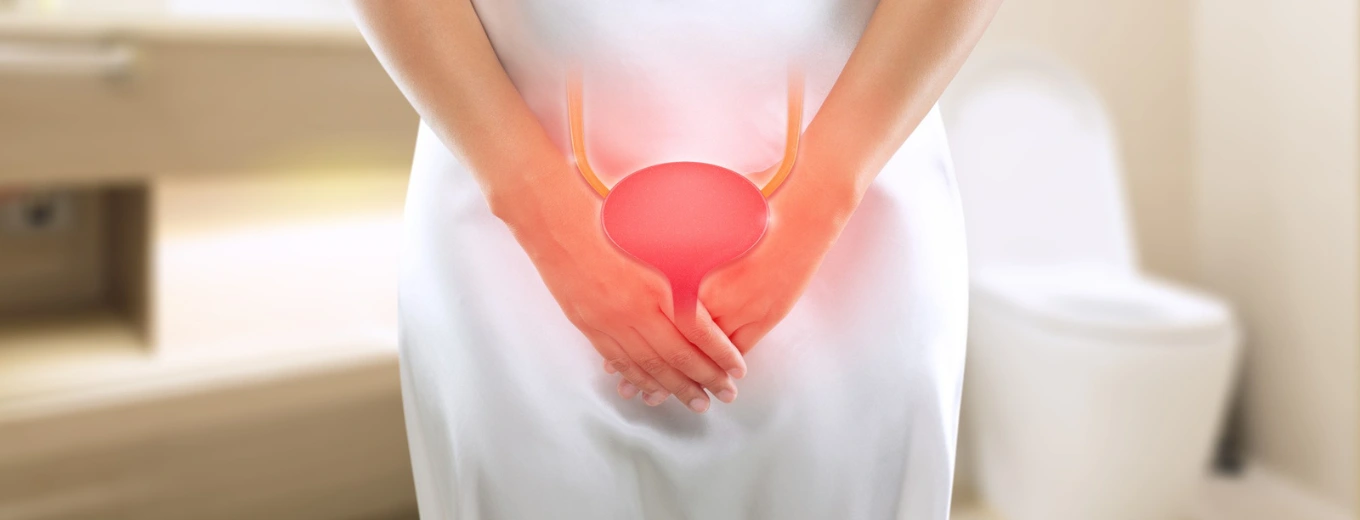Understanding Urinary Incontinence: Take Control of Your Health
Imagine you’re in a meeting or at a social gathering when suddenly you feel a strong urge to urinate, but before you can make it to the bathroom, some urine leaks out. It’s embarrassing and uncomfortable. Urinary incontinence (UI) can affect anyone, and while it may seem like a minor issue, it can significantly impact your life, lowering your confidence and causing emotional distress. At Ray & Rio’s Speciality Clinic, we understand the challenges of urinary incontinence, and we’re here to provide you with the treatment options and support you need.
What is Urinary Incontinence?
Urinary incontinence is the involuntary leakage of urine, a condition that results from the loss of bladder control. This can range from occasional mild leakage to complete loss of control over urination. Several factors can contribute to urinary incontinence, including weakened pelvic floor muscles, nerve damage, and other medical conditions. It’s important to seek medical attention if you’re experiencing these symptoms, as treatment can significantly improve your quality of life.
Types of Urinary Incontinence
There are several types of urinary incontinence, each with its own causes and symptoms:
- Stress Incontinence: Caused by increased pressure on the bladder during activities like coughing, sneezing, laughing, or physical exercise. This is the most common form of incontinence, especially in women after childbirth.
- Urge Incontinence (Overactive Bladder): Characterized by a sudden, intense urge to urinate, followed by leakage. It often occurs due to overactivity in the bladder muscles, leading to frequent, urgent trips to the bathroom.
- Mixed Incontinence: A combination of stress incontinence and urge incontinence. People with mixed incontinence experience symptoms of both types.
- Overflow Incontinence: Occurs when the bladder doesn’t empty completely, causing frequent dribbling of urine. It is often due to a blockage or weak bladder muscles.
Causes of Urinary Incontinence in Males and Females
In females, urinary incontinence can be caused by:
- Pregnancy and childbirth: Weakened pelvic floor muscles after childbirth can result in stress incontinence.
- Menopause: Hormonal changes during menopause can lead to weaker pelvic muscles and reduced bladder control.
- Obesity: Excess weight can put pressure on the bladder, contributing to incontinence.
In males, common causes include:
- Enlarged prostate or prostate surgery: These can obstruct urinary flow or affect bladder control.
- Nerve damage: Conditions like diabetes or spinal cord injuries can cause nerve damage that affects the bladder.
- Bladder dysfunction: As men age, the bladder’s ability to hold and release urine may become impaired.
Preventing Urinary Incontinence with Exercises and Hygiene Maintenance
Several preventive measures can help strengthen pelvic muscles and reduce the risk of urinary incontinence:
- Kegel Exercises: These exercises involve contracting and relaxing the pelvic floor muscles, helping to improve bladder control.
- Regular Exercise: Strengthening your core muscles and maintaining a healthy weight can reduce the pressure on your bladder.
- Maintaining Hygiene: Regular hygiene practices are crucial in preventing urinary tract infections (UTIs) that could lead to incontinence. Always wipe from front to back, use clean underwear, and stay hydrated.
Complications of Urinary Incontinence
While urinary incontinence is not life-threatening, it can lead to several complications if left untreated:
- Skin irritation and infections: Constant moisture from urine leakage can lead to rashes, sores, and urinary tract infections (UTIs).
- Emotional distress: The fear of leakage can cause anxiety, depression, and social isolation.
- Sleep disturbances: Frequent urination at night (nocturia) can interrupt your sleep, leading to fatigue and reduced quality of life.
Diagnostic Tests for Urinary Incontinence
At Ray & Rio’s Speciality Clinic, we use a combination of diagnostic tests to identify the cause of urinary incontinence and recommend the appropriate treatment:
- Urine Analysis: A urine test can help detect signs of infection or other urinary issues.
- Bladder Diary: This involves tracking your urination patterns, fluid intake, and episodes of incontinence.
- Urodynamic Testing: This test measures the bladder’s function, including how well it fills and empties.
- Cystoscopy: A camera is used to examine the inside of the bladder to check for abnormalities.
- Imaging Studies: Ultrasounds or other imaging tests may be used to look for structural issues in the urinary tract.
Treatment Options for Urinary Incontinence
Treatment for urinary incontinence varies depending on the type and severity of the condition. Non-surgical options include:
- Medications: Drugs that relax the bladder muscles or increase bladder capacity can help manage symptoms of urge incontinence.
- Pelvic Floor Muscle Exercises (Kegels): Strengthening the pelvic muscles can improve bladder control.
- Bladder Training: This involves training the bladder to hold urine for longer periods and gradually increasing the time between bathroom visits.
Surgical Interventions may be recommended when conservative treatments fail, including:
- Slings and Mesh: A sling procedure can provide support for the urethra, improving control for those with stress incontinence.
- Bladder Neck Suspension: This surgery helps to prevent leakage by lifting and securing the bladder neck.
- Artificial Urinary Sphincter: A device that mimics normal sphincter function to control urine flow.
Why Choose Ray & Rio’s for Incontinence Treatment?
At Ray & Rio’s Speciality Clinic, we provide comprehensive care for urinary incontinence under the expert guidance of Dr. Griffin, a renowned urologist with a proven track record of successfully treating patients with incontinence and other urological issues. Our clinic is equipped with state-of-the-art facilities and advanced treatment techniques to offer you personalized care and optimal results.
Dr. Griffin’s approach combines compassionate care with the latest medical advancements, ensuring you receive the best possible treatment tailored to your specific needs. Whether you’re dealing with stress incontinence, urge incontinence, or a more complex condition, we offer solutions to improve your quality of life.
Take the First Step Towards Regaining Control
If urinary incontinence is affecting your daily life, Ray & Rio’s Speciality Clinic is here to help. Don’t let incontinence control your life. Contact us today to schedule an appointment with Dr. Griffin and take the first step toward a confident, active, and leak-free lifestyle. Our team is dedicated to helping you regain control over your urinary health and improve your overall well-being.
Take control today—book your consultation and get back to living your life to the fullest!

